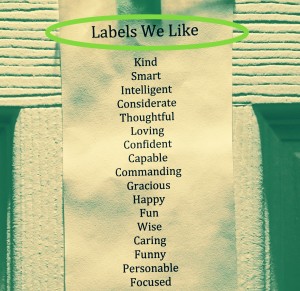Understanding how important your thoughts are to the results in your life is such an important truth. We could talk about it all day, and in many blog posts on different topics! And we will! But in today’s post I’m going to talk about how it relates to children and what we, as adults, say to them. Whether you are a parent, a teacher, coach a sport, an aunt or uncle, grandma or grandpa the words you use with the children in your life influence the thoughts they think about themselves, and about the world.
“You become what you think about, all day long” Ralph Waldo Emerson
“A belief is just a thought you keep thinking” Abraham Hicks
“The soul become dyed with the colour of its thoughts” Marcus Aurelius
Even after children develop a conscious mind at around the age of 4 years old, their subconscious mind remains virtually wide open around family, friends and the people they trust. They believe what they hear! Sometimes how literally they believe things can be funny, like when my son was 3 and while listening to a Beatles song looked up at us and said ‘but babies can’t drive cars!’ And we certainly see it in the awe and admiration on a young child’s face when they ask questions and we (seem to!) know the answers to all of them! It feels like a lot of responsibility. And it is.
As words, ideas and thoughts come in to a child’s developing mind, they go straight into the subconscious mind, and over time, form beliefs, habits and ‘lock’ them into certain ways of thinking. Stop and think about why YOU think some of the things you do. Or when you find yourself saying something to the young people in your life that sounds exactly like what your mother or father used to say…
We can see this in how the child who gets known as the ‘smart’ one, the ‘one who can’t spell’, who ‘always cries’ or is ‘uncoordinated and clumsy’ continues along these paths unless someone helps him or her see other possibilities and develop these in their lives. You can help the young people you interact with by showing them these possibilities through the words you use and ideas you share with them.
Here’s one way that we have consciously tried to address this in our house. It has helped train my husband and I to use different words.
We created a list of Labels We Like.
You’d be surprised how often people spout out labels that are harmful. Many of these represent traits that people have (lazy, silly, stupid, mean, annoying, ungrateful…). If we tell our kids this – even in anger – do we really mean it? Do we want them to grow up to be adults with these traits? I’d say NO.
Create a list of label you DO like. Imagine yourself at your child’s graduation or wedding, giving a speech about him or her. What do you envision yourself saying? What ‘labels’ would you use? Write them down. Put them up somewhere to remind yourself of these positive words. My list is on the inside of my closet door where I see it every single day.  This isn’t about excessive praise or overdoing the positive. It’s about using words to create images of your child in your mind, and of him or herself in his or her mind – that he or she will start to think about more and more until the idea become a belief. A belief in themselves that they are a ‘caring’ person, a ‘capable’, person, a ‘fun’ person!
This isn’t about excessive praise or overdoing the positive. It’s about using words to create images of your child in your mind, and of him or herself in his or her mind – that he or she will start to think about more and more until the idea become a belief. A belief in themselves that they are a ‘caring’ person, a ‘capable’, person, a ‘fun’ person!
If you are in a tough place right now and can’t think of any positive labels, call someone else who loves your child – a grandparent or aunt, teacher or coach. Ask them to remind you how amazing your child is. Guaranteed they will have some positive labels to share!
Which came first the behaviour or the label…? When our subconscious mind believes something (and it can only believe) our conscious mind and our actions will work to reinforce it. As a parent, I can’t control what my children experience outside of our family life. But I can feed their minds with possibilities, and help ‘immunize’ against harmful ideas and comments they encounter out and about in the world. And you can too!

